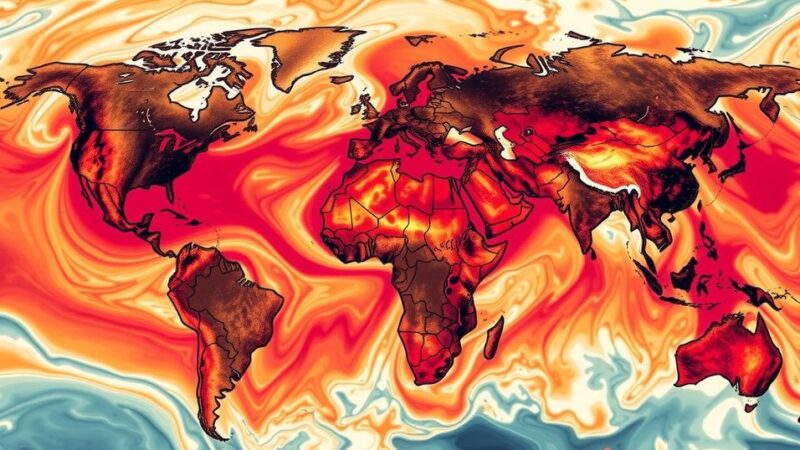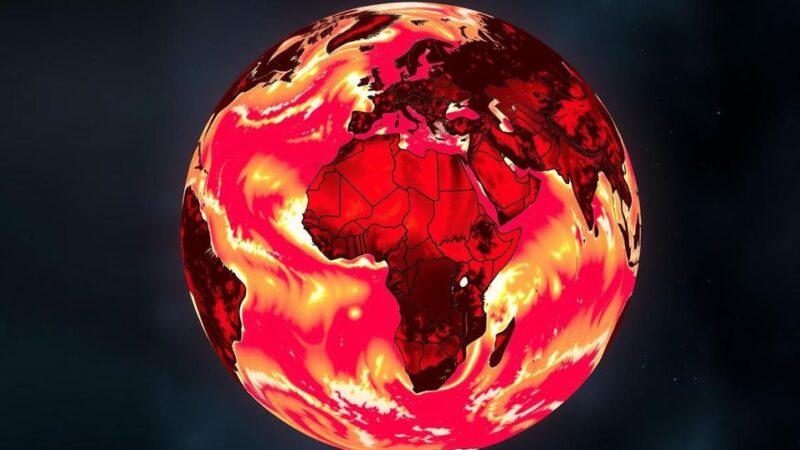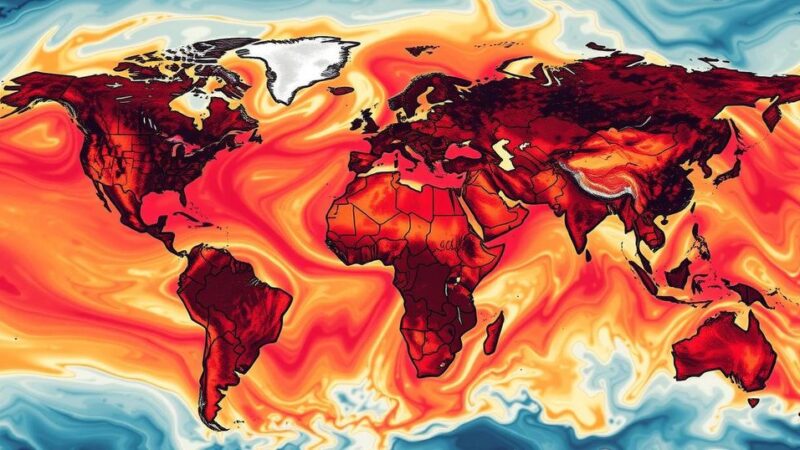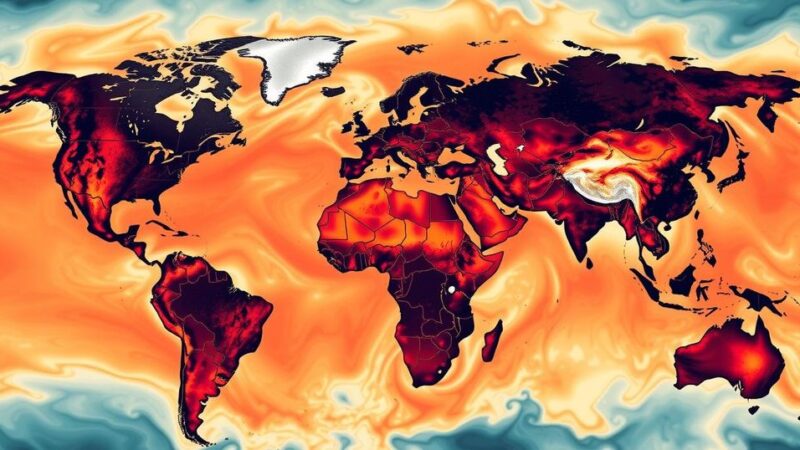2024 has been confirmed as the first year when global temperatures topped 1.5 degrees Celsius above pre-industrial levels, as reported by the Copernicus Climate Change Service. The alarming trend was evident in record monthly temperatures and significant climate-related disasters worldwide. Experts emphasize immediate action is needed to counteract climate change despite political hesitancy in some regions.
Scientists have confirmed that the year 2024 marked the first occasion where global temperatures reached 1.5 degrees Celsius above pre-industrial levels. This was indicated by the European Union’s Copernicus Climate Change Service (C3S), which noted unprecedented temperature levels driven by climate change. Carlo Buontempo, director of C3S, articulated the alarming trend of rising temperatures during each month of 2024, emphasizing that this year was the hottest on record and highlighted a decade of escalating temperatures. The average global temperature was recorded at 1.6 degrees Celsius above the 1850-1900 baseline, reinforcing concerns of a warming planet.
Moreover, the implications of exceeding the 1.5C mark are profound, even though this single year’s data does not represent a breach of the longer-term Paris Agreement targets. Buontempo urged for immediate action to curb greenhouse gas emissions, stressing that nations still have the potential to alter the current trajectory. The consequences of climate change are now apparent globally, with extreme weather events evidenced by devastating wildfires in California, severe flooding in various countries, and hundreds of weather-related disasters costing over a billion dollars in damages worldwide.
Despite the alarming conditions recognized by scientists and communities alike, there appears to be waning political will in some regions to invest in essential measures against climate change. With atmospheric carbon dioxide concentrations reaching a new high of 422 parts per million in 2024, the need for global cooperation and response is more critical than ever. As we look forward, experts anticipate 2025 to be among the warmest years recorded, predominantly influenced by human activities and natural climate patterns.
The report by the Copernicus Climate Change Service highlights a critical threshold in global climate change, where average temperatures surpassed the limit set by the Paris Agreement. This milestone indicates the urgency for governments worldwide to reinforce their commitments to reducing emissions and implementing sustainable practices. The ongoing impacts of climate change manifested through various destructive weather patterns indicate that immediate action is necessary to mitigate further warming and associated disasters from escalating.
In conclusion, the year 2024 represents a significant turning point in climate science, marking the first full year that global temperatures have exceeded 1.5 degrees Celsius above pre-industrial levels. The data from C3S illustrates the urgent need for collective action to combat the detrimental effects of climate change. It is imperative for political leaders and nations to recognize the gravity of this situation and strive for ambitious targets to reduce greenhouse gas emissions, ultimately safeguarding the planet for future generations.
Original Source: www.straitstimes.com







